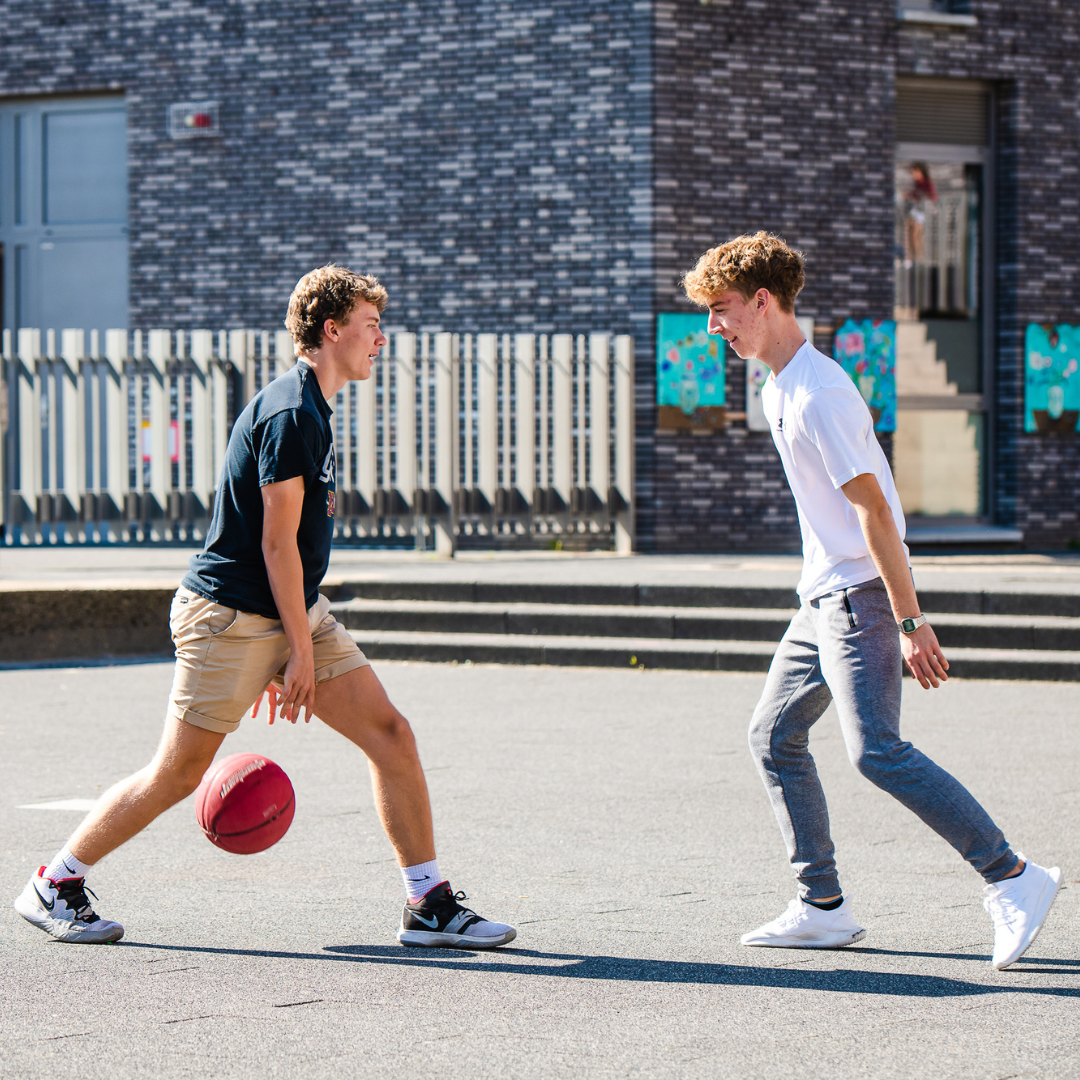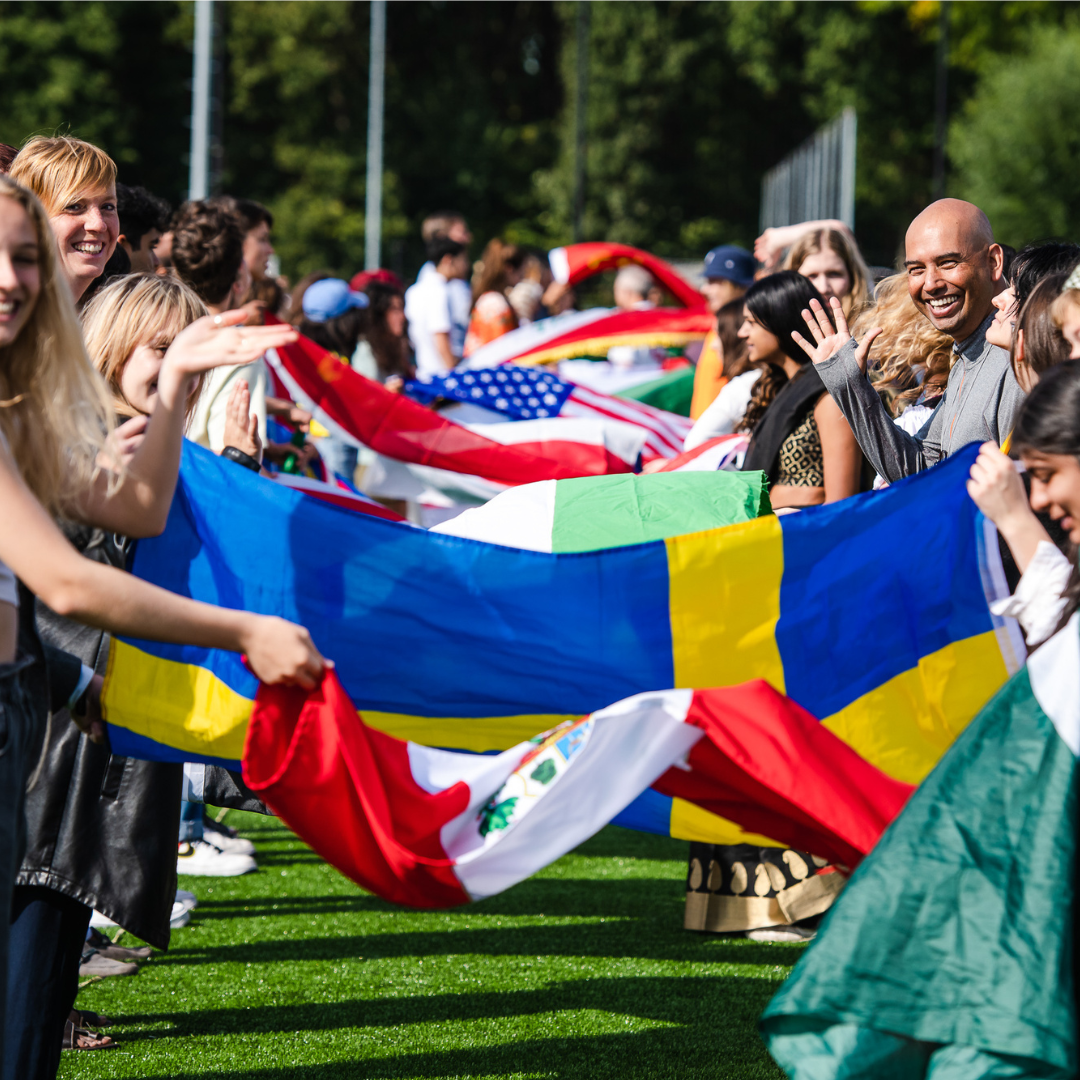UWC Maastricht
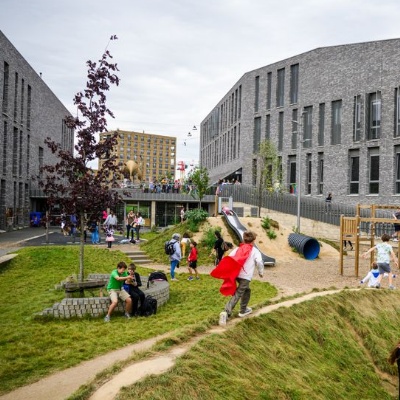
Maastricht, The Netherlands
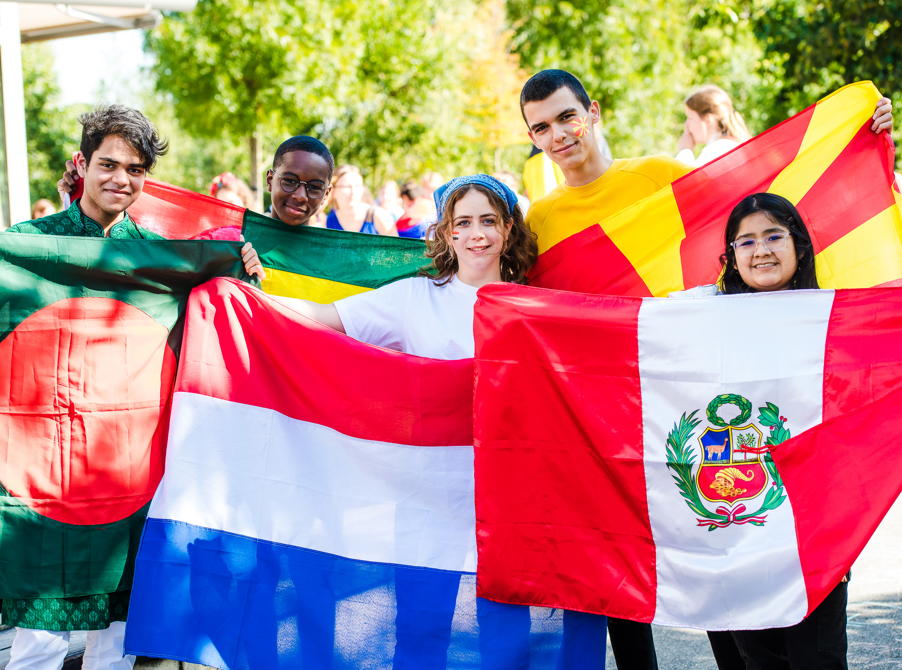 783 students, aged 4 to 19 years
783 students, aged 4 to 19 years- Founded - 2009
UWC Maastricht is a multicultural school that hosts students from more than 100 different nationalities. It operates within the Dutch public education system and is subsidised by the Dutch government. The school was formed to serve both the needs of the Maastricht international community and the students chosen by UWC national committees all over the world. UWC Maastricht welcomes students between the ages of 4 and 19.
 Three unique features
Three unique features
Primary & secondary school, day & residential students, Diploma Programme & Career-related Programme: UWC Maastricht hosts international students, ranging from age 4 to 19. The majority of them live with their families in the region and 200 residential IBDP and IBCP students live on campus.
Social Impact Programme: UWC Maastricht has designed a social impact programme including action-oriented courses, social entrepreneurship, student-led conferences and community service projects. Students develop the skills and attitudes needed to be active participants in society, to identify problems and injustices wherever they exist.
Location: UWC Maastricht campus is located in a very green and leafy part of Maastricht, close to the city centre and close to the German and Belgian border. The city of Maastricht is one of the top Dutch destinations for international visitors and tourists alike. It has an open, multilingual, and innovative society, full of vitality.
Academic curriculum
In their final two years of secondary school, UWC Maastricht students follow the International Baccalaureate Diploma Programme (IBDP) or the International Baccalaureate Career-related Programme (IBCP). The IBDP is made up of three core components and six subject groups. The IBCP also offers IBDP subjects, but combines these with an in-depth career-related study in Sustainable Business or Music.
Average class size: 22 students
International Baccalaureate Diploma Programme
Core components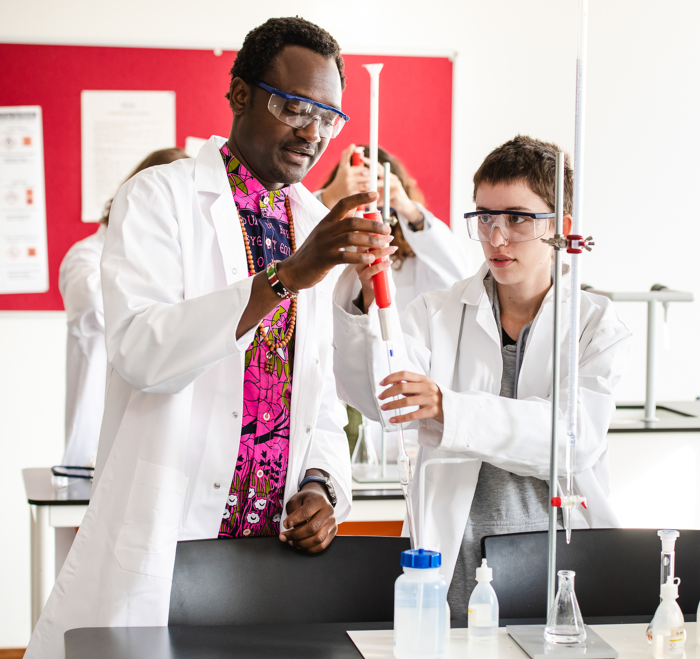
- Theory of Knowledge: students reflect on the nature of knowledge and on how we know what we claim to know.
- The Extended Essay: an independent, self-directed piece of research, finishing with a 4,000-word paper.
- Creativity, Activity, Service (CAS): students take part in a range of experiences and at least one project.
Subjects
 Studies in language and literature: English Literature, English Language & Literature, Arabic Language & Literature, Dutch Language & Literature, French Language & Literature, Italian Literature, Spanish Language & Literature, Chinese Language & Literature, School Supported Self-Taught Literature
Studies in language and literature: English Literature, English Language & Literature, Arabic Language & Literature, Dutch Language & Literature, French Language & Literature, Italian Literature, Spanish Language & Literature, Chinese Language & Literature, School Supported Self-Taught Literature- Language acquisition: Dutch B, Dutch B Ab initio, English B, English B Ab initio, French B, French B Ab initio, German B, German B Ab initio, Spanish B, Spanish B Ab initio
- Individuals and societies: Economics, History, Geography, Environmental Systems & Societies
- Sciences: Biology, Chemistry, Design Technology, Physics, Environmental Systems & Societies
- Mathematics: Maths - Analysis and Approaches, Maths - Applications and Interpretation
- The arts: Visual Arts, Music, Film
Co-curricular
All students at UWC complete a co-curricular programme called Creativity, Activity and Service (CAS) - an integral part of the IB qualification. Students get the opportunity to choose a physical, a creative and a social service activity.
On top of this, UWC Maastricht has designed a Social Impact programme including action-oriented courses, social entrepreneurship and community service projects. UWCM students develop the skills and attitudes needed to be active participants in society, to identify problems and injustices wherever they exist. They design project weeks, providing service to the Maastricht community, but also other places around the world.
Physical activities:
- Badminton
- Basketball
- Football
- Kpop dance
- Cycle club
- African Dance
- Zumba
- Kayak Canoeing
- Volleyball
- Massage
- Mindfulness
- Floorball
- Rugby
- Swimming
- Tennis
- Ultimate Frisbee
- Work Out
- Mountain Biking club
- Sports & Outdoor fitness
Creative activities:
- Artmaking
- The Flying Dutchmen - School Newspaper
- Debate club
- Chinese Calligraphy
- Choir
- Cultural Evenings
- Dance
- Model United Nations (MUN)
- Programming
- Music clubs
- Yearbook
- Video Editing
- Math club
- Computer science
- Musical
- Sewing club
- Handicraft club
- International Show
Social service:
- Subject support
- Peer support
- Writing Support
- Swap Shop
- Environmental Action Group
- Exploring cinema
- Service in Departments (Facilities, film assistant, Music room assistant, Drama department assistant)
- Campus care teams
- Student-led initiatives organising teams (conferences, events, lectures)
- Primary support groups (classroom assistants, primary library assistants)
- Library supervision group
- Exploring cinema
- Outside of school: Students work together with more than 100 external organisations in the Maastricht region: from elderly-care homes, child care and animal shelters to environmental, human rights and refugee organisations.
Facilities and residences
UWCM campus is located in a very green and leafy part of Maastricht, close to the city centre. The site is surrounded by sports fields, a nature reserve and modern housing.
Facilities
- Medical Centre
- Gym
- Art Centre
- Basketball courts
- Music Room
- Library
- Film Laboratory
Residential accommodation
IBDP/CP students live in residences across three buildings consisting of three floors, each comprising six rooms. Every room hosts four to five students, of different nationalities. Each floor has a common room, study room, laundry room and kitchenette and is supported by a Residence Mentor who lives in an apartment adjacent to the floors.
Medical provisions and wellbeing support
Medical provisions
- Full-time nurse
- Full-time psychologist
- All students are registered with a local general practitioner
Academic and emotional wellbeing
The school supports students’ academic and emotional wellbeing through:
- Each student is allocated a tutor, who meets with students individually and in small groups
- Students are able to self-refer or be referred to a counsellor or a psychologist
- All residential students have access to residence mentors
